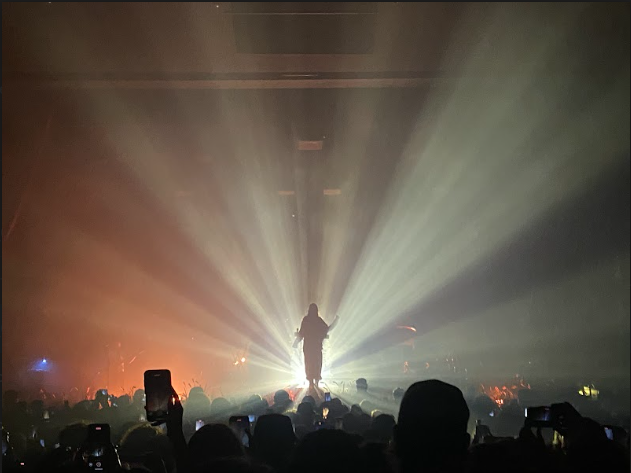A Love Letter to Art: A Review of Caleb Azumah Nelson’s Open Water
.jpg)
Caleb Azumah Nelson’s 2021 adult literary fiction novel, Open Water, is a tender and sensitive love letter to art, music, beauty, and what it means to be Black in a culture that looks but doesn’t see.
“Let’s ask: which came first, the violence or the pain?”
The novel is set in a London pub one night, where a photographer meets a dancer whom he befriends and later loves. Neither character’s name is used throughout the novel, but that remains unnecessary as readers are given an intimate look into these two artists’ intricate lives.
“You lie beside her, settle into a familiar position. The break since this last happened has made no difference. You fit, like this is an everyday. The only difference here is sunshine filtering through your light curtains. This is a daydream rather than a night-time reverie.”
In reading only the first few pages, it is abundantly clear that Open Water’s greatest triumph is its beautiful, almost lyrical, prose. Each chapter reads like a stanza of poetry, filled with deep, insightful quotes on life, art, beauty, race, and masculinity. Nelson makes many references to famous Black creators in the arts, including authors Zadie Smith and James Baldwin, painters Sola Olulode and Lynette Yiadom-Boakye, musicians Kendrick Lamar and James Brown, and films Moonlight and If Beale Street Could Talk. Addressing his main character in the second person perspective, Nelson is a master at the art of repetition, drawing parallels and juxtaposition between different ideas and characters at several points in the book.
One such motif is the symbolism of open water, which doubles as the title of the novel. In this case, open water represents vulnerability and being honest with oneself. For many months, the photographer and the dancer skirt around the fact that both have feelings for one another. When one finally confesses their love to the other, they expose their heart in tender vulnerability, out in the proverbial open water where they could just as easily drown from the pressure. Nelson returns to this idea of open water again as the photographer further struggles with expressing his vulnerability to the dancer in a society that has conditioned him to hide and silence his feelings in the name of so-called masculinity.
“To be you is to apologize and often that apology comes in the form of suppression and that suppression is indiscriminate.”
One of the most striking moments of the novel was its examination of racism within the photographer’s life. As a Black British-Ghanaian man, the photographer often felt that society looked at him and saw only a “container, vessel, [and] property.” They saw him as a body but not a person; merely a number, statistic, and stereotype. Throughout the novel, he observes and experiences racial profiling, microaggressions, and unjust treatment from police, each act building a growing sense of unease, diminishment, and suppression within him. All of this comes to a head when he witnesses the violent and untimely death of his friend, and the photographer closes himself off from everyone, including the dancer. In this way, Nelson crafts a sensitive and tender portrait of two young Black artists whose love blossoms against the backdrop of systemic issues, violence, and racism.
“Imagine knowing that your wholeness could be split at any moment, so you live in pieces. You live broken, you live small, lest someone make you smaller, lest someone break you… You have been torn and furled and you’re scared you will flutter away in a small breeze. Forever unseen. This is how young boys die.”
Equal parts sensitive and insightful, Open Water is beautiful and masterfully crafted, highlighting many important themes and topics in contemporary society. Every single line of prose within the novel is expertly chosen, a true testament to Nelson’s brilliance and skill. Beyond the conventional love story, Open Water is an intimate examination of the fragile intersection between art, beauty, racism, and masculinity. It is an important and essential read for readers at all stages of life.
All above quotes are attributed to Caleb Azumah Nelson.
About Harbord Tigertalk
Welcome to Tigertalk! Harbord Collegiate Institute's very own school newspaper. We bring school connection and student's voices to light through our monthly publications of literature, photography, reporting, interviews, art, and other mixed medias. Our small publication ranges from 10-15 members. Happy Reading!
Have A
Good Story?
Want to contribute to your favourite school
newspaper? Send in a quick contact form and we’ll get back to you as soon as we can!


.png)

.png)